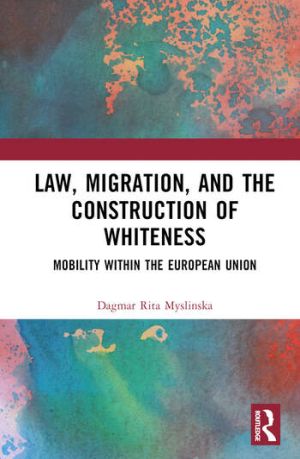
This book addresses the hidden dynamics of race within the European Union.
Brexit supporters’ frequent targeting of European Union (EU) movers, especially those from Central and Eastern Europe, has been popularly assumed as at odds with the EU project’s foundations based on equality and inclusion. This book dispels that notion. By interrogating the history, wording, omissions, assumptions and applications of laws, policies and discourses pertinent to mobility and equality, the argument developed throughout the book is that the parameters of CEE nationals’ status within the EU have been closely circumscribed, in line with the entrenched historical positioning of the west as superior to the east. Engaging current legal, economic, political and moral issues--against the backdrop of Brexit and contestations over EU integration and globalisation--this work opens avenues of thought to better understand law’s role in producing and sustaining social stratifications. Europe is a postcolonial space, as this book demonstrates. By addressing fractures within the construct of whiteness that are based on ethnicity, class and migrant status, the book also provides a theoretically nuanced, and politically useful, understanding of contemporary European racisms.
This book will appeal to scholars, students and others interested in migration, EU integration and EU citizenship, equality law, race and ethnicity, social policy, and postcolonialism.